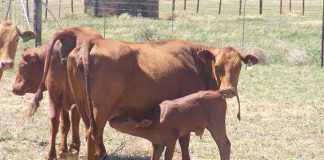Steyn Lewis has been at odds with the department for the past four years, ever since it closed down his sawmill on the farm Hoogekraal Portion 182/4. According to Lewis, the sawmill was closed down overnight, destroying his livelihood, and after four years of meetings, the department has still not advised him how he should fix the alleged problem.
Lewis told Farmer’s Weekly his woes started when he sold the property to his son in an attempt to raise capital to buy new machinery for the sawmill. “We received a notice from the department of environmental affairs saying the property needed to be decommissioned, and this was followed by a notice saying that the property was contaminated,” said Lewis.
In an attempt to rectify the situation, Lewis had an environmental plan created by Stuart Green, of the Green Scorpions (environmental compliance and enforcement officials for the Department of Environmental Affairs) for the rehabilitation of the farm, but this was rejected by the department. “I’ve tried to co-operate for almost four years without any advice or assistance from the department, except for the single plan laid out by Green, which I followed in every aspect until I was told that, in fact, the plan was not acceptable.”
Lewis added that while he was prevented from entering and using the farm, six families living on the property illegally are farming with vegetables and selling his timber. According to Lewis, no tests were done on the farm to prove that some areas are contaminated, and he was never told where the contamination site was on the 69ha farm or what the alleged contaminant was . “It’s not right that the department can prevent you from going onto your farm without doing any tests to prove its allegations,” said Lewis.
But according to the Western Cape department of environmental affairs it did investigate and an environmental crime had been committed. Departmental spokesperson Aziel Gangerdine said the department cannot act at will since it is bound by procedure and these have been followed. Gangerdine said if a complaint is received, it is investigated by the environmental management inspectors.
If the investigation reveals that an environmental crime has been committed, the inspectors will institute administrative enforcement actions against the perpetrator or the landowner, or the person responsible for the land, by issuing an administrative enforcement notice. The department has since indicated an interest in buying the land from Lewis’ son but they are still struggling to get the contaminated sites on the property decommissioned.
“The provincial agricultural department consulted with the landowner with an interest to purchase the property for previously disadvantaged small farmers as well as for the families who are currently residing and farming on the property,” he explained.
“But significant delays were experienced as the agriculture department had to secure the necessary funding to appoint an environmental assessment professional. Their job is to administer the process to apply to the environmental affairs department for a waste management licence with the intention to decommission the contaminated sites on the property,” he said.










